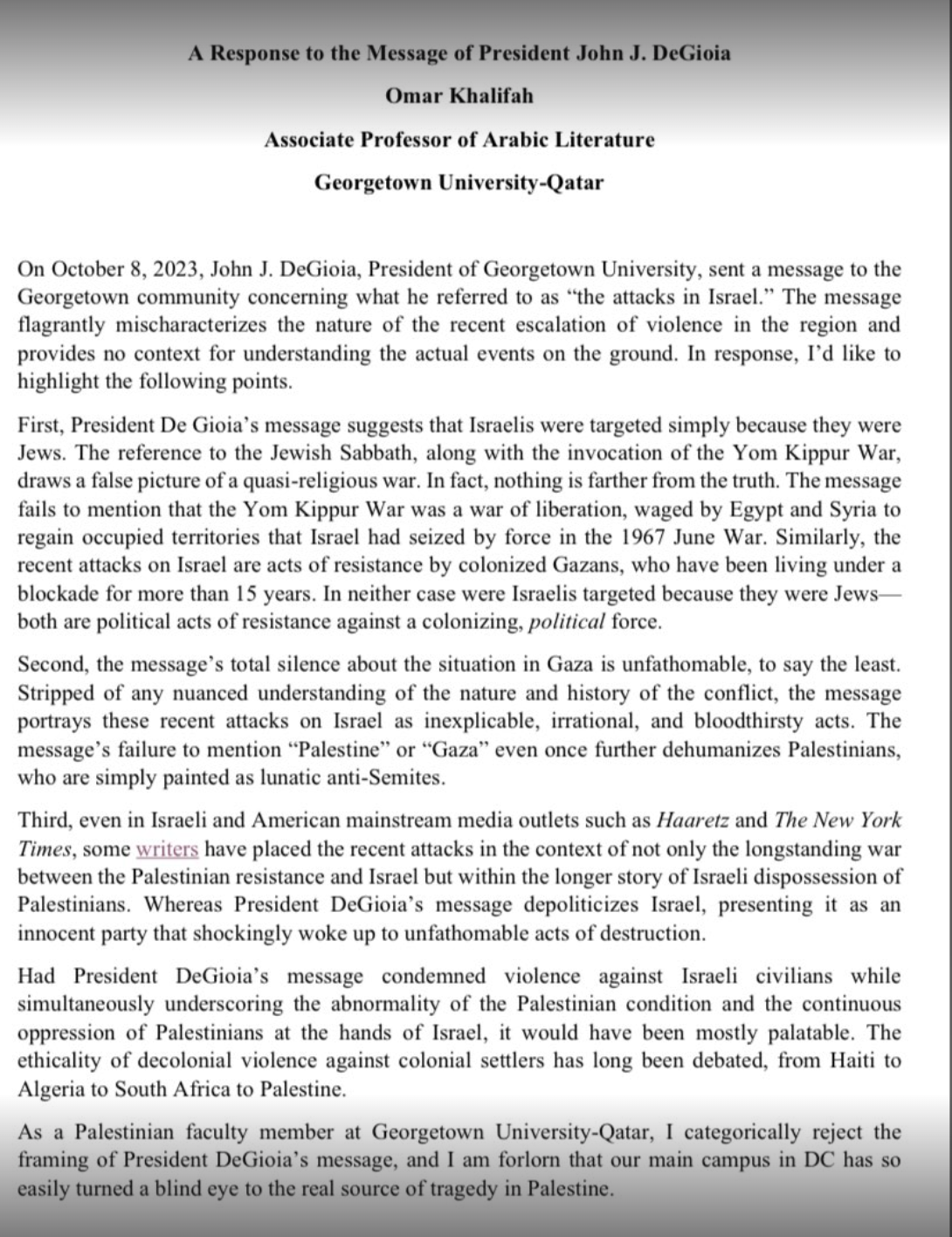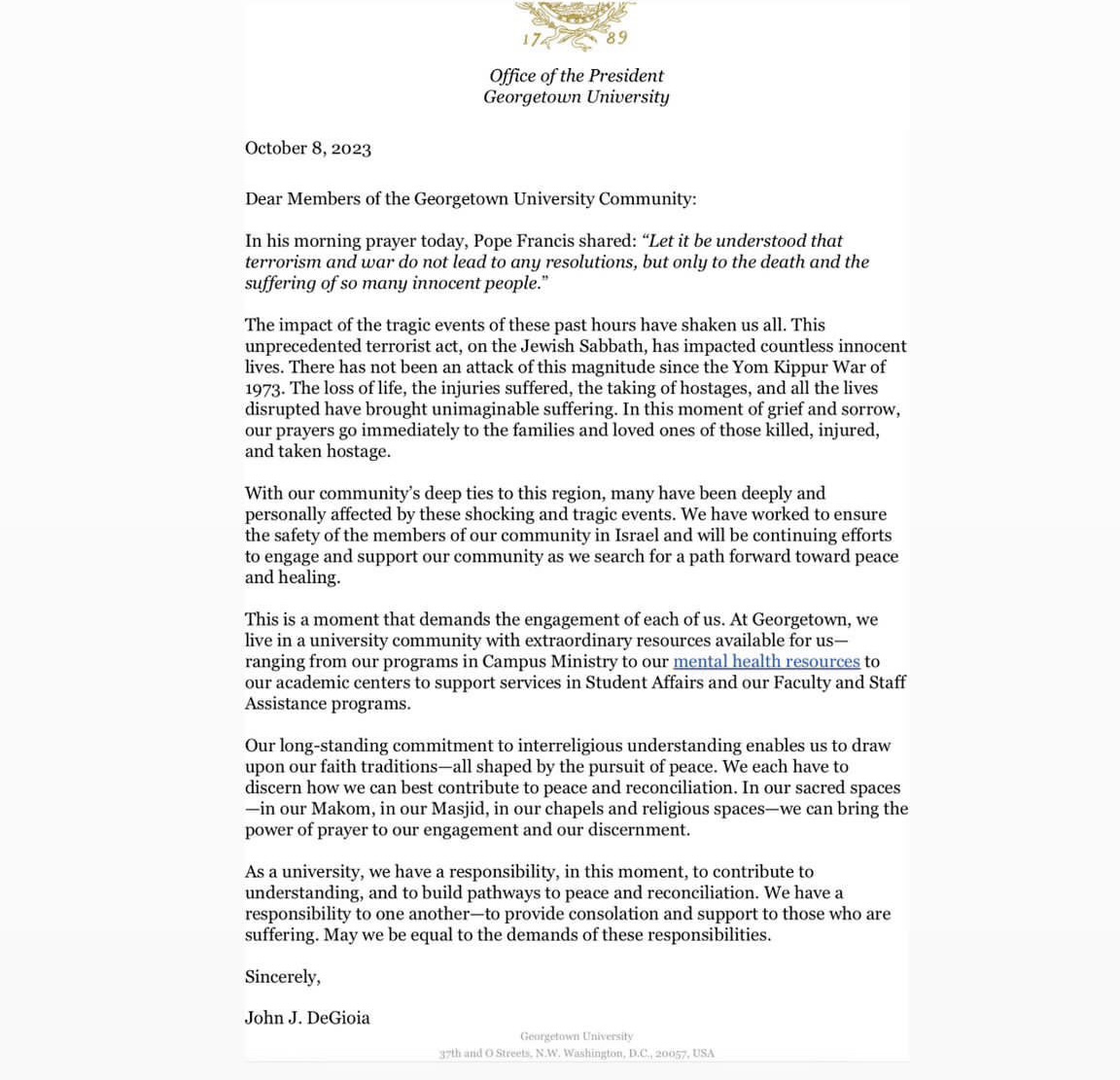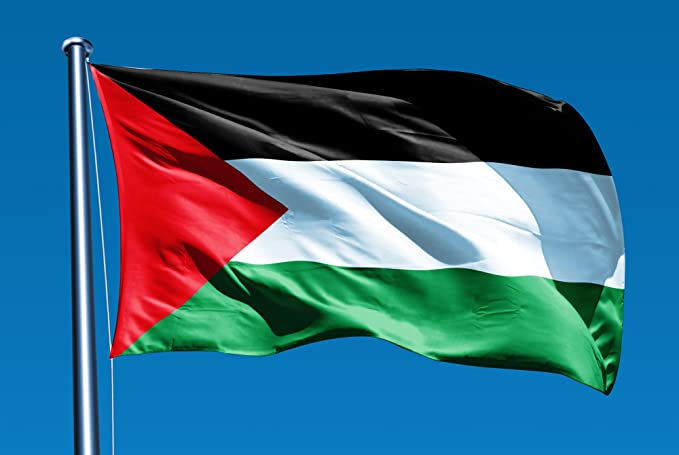Georgetown University President John J. DeGioia sent out an email message addressing current events to the wider Georgetown University community this week.
A Georgetown University-Qatar professor has called into question the president of the renowned US-based university following a statement that he said omits critical perspectives and understanding of the ongoing situation in occupied Palestine.
In a detailed letter, Associate Professor of Arabic Literature at GUQ, Omar Khalifah, addressed what he described as a false narrative painted by the President John J. DeGioia’s recent email.
“President De Gioia’s message suggests that Israelis were targeted simply because they were Jews. The reference to the Jewish Sabbath, along with the invocation of the Yom Kippur War, draws a false picture of a quasi-religious war,” Khalifah asserted, further clarifying that in neither historical cases were Israelis targeted because they were Jews. “Both are political acts of resistance against a colonising, political force.”
“The message flagrantly mischaracterises the nature of the recent escalation of violence and provides no context for understanding the actual events on the ground,” he added.
The professor was particularly disturbed by DeGioia’s dismissal of the critical situation in Gaza.
“The message’s total silence about the situation in Gaza is unfathomable.” He further criticised the portrayal of the resistance’s actions, stating that the message paints them as “inexplicable, irrational, and bloodthirsty acts,” while failing to mention “Palestine” or “Gaza” even once.

His letter came in response after Georgetown University’s President John J. DeGioia sent out an email message addressing current events to the wider Georgetown University community, echoing Pope Francis’s sentiments on the devastation caused by “terrorism and war.”

The message was met with immediate scrutiny, with the Students for Justice in Palestine (SJP) at GU-Q denounced the terminology and underlying Zionist narrative in DeGioia’s email.
The group at GU-Q issued a statement in condemnation of the university’s president’s letter.
“The bias in President DeGioia’s message and the apparent silence of the Georgetown administration is palpable. Describing Palestinians merely as terrorists, while portraying settlers as innocent victims, whitewashes decades of occupation, displacement, and the undeniable struggles of the Palestinian people,” their statement read.
The student organisation also highlighted the clear absence of solidarity from the GUQ administration and faculty. “For a campus enriched by a significant Palestinian student presence, such lack of support is both disheartening and alarming.”
“Faculty are also part of the problem. We demand all faculty members to speak up and practice the framework of decolonisation they teach in classes,” they said in a tweet following their statement.
On Saturday, Hamas launched the largest attack on Israel in years, infiltrating areas in the south of the country in response to a recent increase in Israeli aggression against Palestinians in the West Bank, including a spike in violence at Al Aqsa Mosque.
Since declaring war on Saturday, Israel has killed more than 1,350 Palestinians including hundreds of children. However, the death toll is expected to continue as Israel intensifies its bombing campaign across the besieged strip.
Israel’s Defence Minister Yoav Gallant has also declared a full blockade on Gaza and has sparked fury after describing Palestinians as “human animals”.
“I have ordered a complete siege on the Gaza Strip. There will be no electricity, no food, no fuel, everything is closed. We are fighting human animals and we act accordingly,” Gallant said during the announcement.
Human Rights Watch has condemned the act of using starvation as “a weapon of war,” while the UN High Commissioner for Human Rights, Volker Turk, emphasised the blockade’s breach of international humanitarian law.
On Thursday, the International Committee of Red Cross warned three of five water plants in Gaza are out of service due to the Israeli bombing, posing a major challenge to hospitals attempting to treat severely wounded Palestinians.







